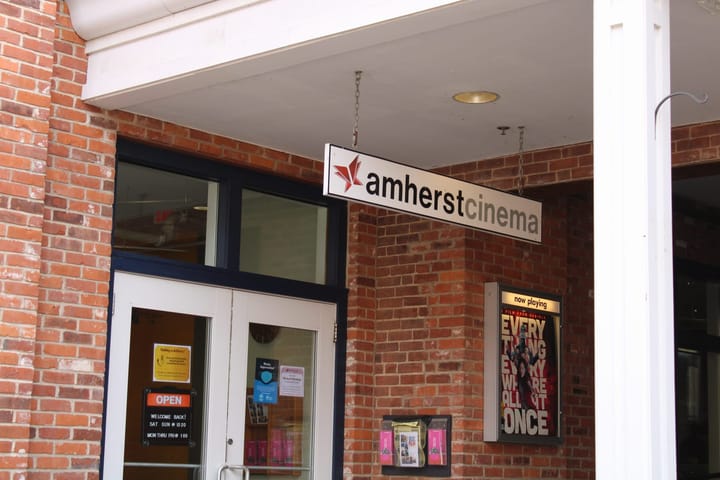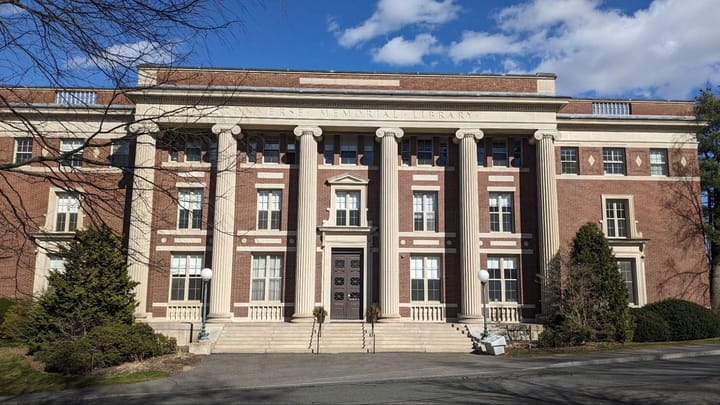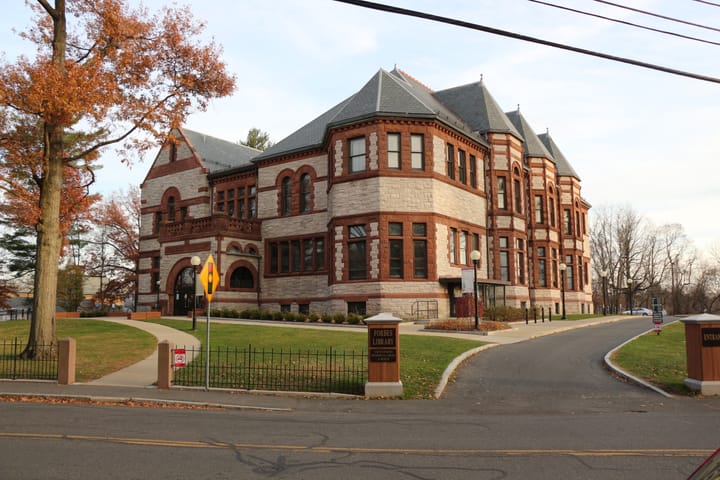Two senior alumni continue to inspire
Dr. Corbet Johnson
Always ask questions. Always ask why.” That’s the philosophy that Dr. Corbet Johnson ’24 learned as a student at the College and still uses to this day, almost 80 years later. Johnson, the College’s oldest surviving alumnus, embodies the timeless tradition and spirit that the College represents.
After graduating in 1924, Johnson went to medical school at Syracuse University, earning his M.D. in 1928. “At that time we thought medicine was pretty good,” he said . He decided he wanted to run his own general practice and “reach people.” He moved to Sventure, N.Y., a small town with a population of about 500 to became what he calls “the stereotypical country doctor.”
“I delivered babies, and patched up cuts and bruises,” said Johnson. “There was a general belief in the town that if you had to send someone to the hospital, you weren’t a very good doctor.”
Although he enjoyed his time in rural New York, Johnson decided that it was not the place to pursue his interest of internal medicine. In 1937, he moved to Cambridge, Mass. to begin work at the Massachusetts General Hospital.
During his time at Mass. General, Johnson joined the American College of Physicians and the American College of Cardiologists. “I was very interested in diagnosis and children’s cardiology,” said Johnson. “I wanted to study congenital birth defects because in those days there was very little heart surgery being done.” Johnson opened up his own clinic in Boston, where he continued to serve the community until retiring in 1971.
The College’s beautiful rural surroundings gave Johnson a true appreciation of the outdoors. In 1940, he bought two houses-one in Canada and another in Waverly, NY-where he and his wife, Ruth spent their summer vacations. “The place in New York became kind of a Johnson family compound, where my children and grandchildren would all congregate throughout the year,” said Johnson.
Upon retiring from the medical profession, Johnson bought a house in Holmes Beach, FL, where he currently lives with his daughter. He returns to New York for the summer months. Despite his retirement, Johnson has remained an active consultant to many medical boards.
Johnson is one of four members of his family-including his two brothers and his son, Corbet Jr.-to have a degree from the College. “Amherst has done a lot for me and my family, it has made me a lot more complete,” he said.
Johnson lived in South College throughout his four years. “My room was very barren and had just a cot, plus we had to attend chapel every Sunday,” he said. Biology and chemistry were his favorite classes but he regrets the three years he studied Greek. “It was an utter waste of time,” he said.
The Amherst of old and new do retain some similarities, as seen by Johnson’s recollection of his fondest memories while at the College, “I guess it was my junior year, some buddies and I scraped some money together and bought an old Ford so we could drive up to Williamstown for the Amherst-Williams game,” he said. “After the game, we went out to all the parties and started to head back to Amherst sometime after midnight. On our way back we ran out of gas and had to ditch the car and hitchhike the rest of the way home.” Although the College has evolved dramatically over the last 78 years and the price of a Ford has increased a bit, some things will never change.
“Amherst meant a great deal to me,” said Johnson. “It is a very special place.”
Dr. Edward Manwell
Dr. Edward Manwell
Growing up in Northampton, Massachusetts and upholding his family’s tradition were the driving forces behind Dr. Edward Manwell’s ’25 decision to attend Amherst College. Another of the College’s oldest surviving alumni, Manwell currently lives in Northampton with his daughter and son-in-law.
Manwell’s brother and father, a former minister in Northampton, also graduated from the College. “Amherst meant a great deal to me,” said Manwell. His time at the College was no walk in the park; however, as he spent much of his education working. “I had no money when I got to Amherst so I worked for a furniture company,” he said. “Also, there were no eating facilities at Amherst back then, so I got a second job at Blaire’s boarding house.”
When he wasn’t working, Manwell was busy studying biology under Professor of Biology Harold Plough, to whom he attributes to his ultimate decision to go into medicine. Upon his graduation from the College, Manwell attended medical school at the University of Rochester, earning his M.D. in 1929. He returned to Amherst in 1930 and became the College’s general physician. “I always thought I would end up on the West Coast,” said Manwell. “But I guess Northampton was just natural for me.”
Manwell worked as the College physician until 1940, at which point he served in the army during World War II. After the war, he returned to Northampton where he lived with his wife, who was also a physician. Manwell worked as a general surgeon at the Veterans’ Hospital in Holyoke and the Chronic Disease Hospital in Westfield.
One of the many things Manwell took away from his Amherst experience was a desire to help people. This desire led him and his wife to travel around the world volunteering their medical training to aid disadvantaged people. “It was a lot of fun,” said Manwell. “My wife and I were almost always together. Of course she was a pediatrician and probably did more for those people then me. I just patched up their broken bones and cleaned their cuts.”
Manwell and his wife traveled to Navajo reservations, Kenya, Vietnam and Afghanistan, among other places, in order give medical aid to underprivileged populations. When Manwell wasn’t volunteering overseas, he worked for the local hospitals, and still found time to raise a family. Manwell retired in 1975, yet to this day he maintains contact with the local hospitals.
In 2000, Manwell gave back to the school that started him on his way so many years ago. Manwell established the Manwell Family Professorship in Life Sciences. The professorship honors and supports a member of the College’s faculty in the field of biology, neuroscience, psychology or chemistry. The chair is currently held by Professor of Biology Stephen George.





Comments ()